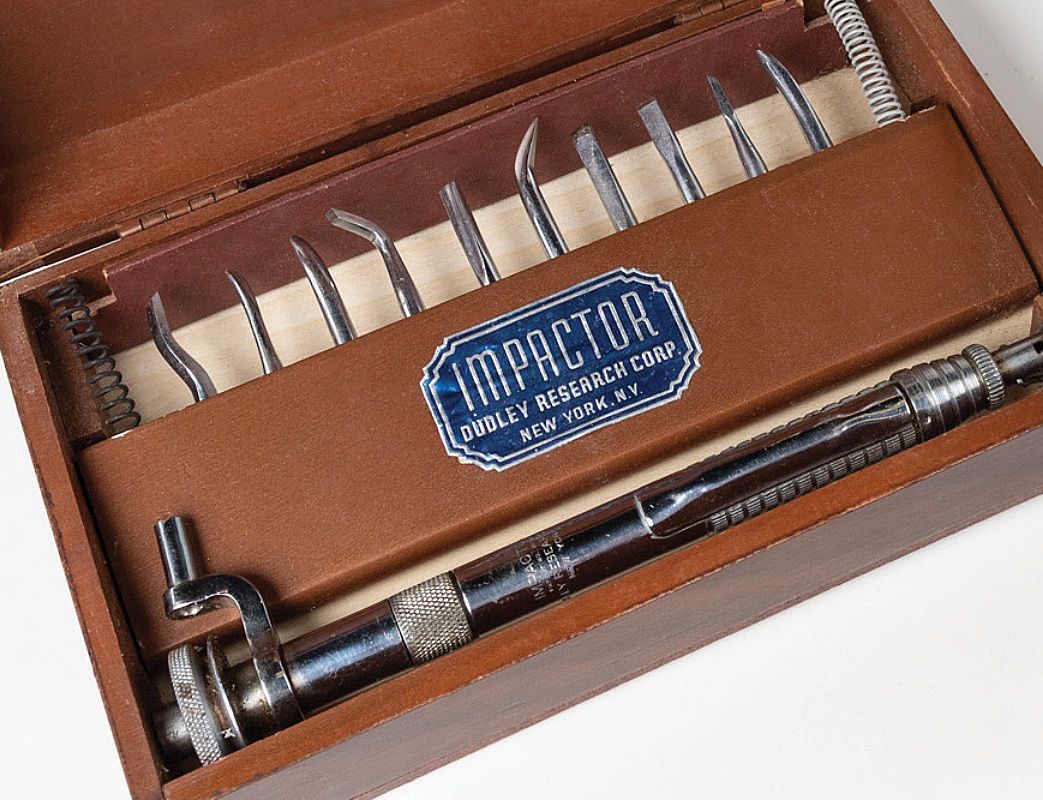THIS ANACHRONISTIC HANDPIECE WAS ONCE STATE OF THE ART FOR TOUGH EXTRACTIONS.
BY LARRY COHEN
ALMOST ALL DENTISTS used to pull teeth, and the Dudley Impactor (above) was their go-to instrument for impactions and other difficult ex-tractions. It attached to a belt-driven engine and delivered an up-down motion to the blade—akin to the way an air hammer breaks up concrete.
Despite this nasty thing’s former prevalence, there’s little information available today about the Impactor. It became popular following the advent of effective anesthetic, then died off as the era of high-speed handpieces and oral surgeons approached. The device was patented in 1940 by Dudley D. Levy, whose company, the Dudley Research Corpo-ration, was located at 18 West 27th Street in Manhattan. (Don’t bother visiting unless you need an iPhone charger; that address is now home to a wireless-accessories store.) Judging by the company motto—“When you do the common things of life in an uncommon way, you command the attention of the world”—Levy had a pretty lofty view of his work.
Each handpiece shipped with a document titled “The Surgical Ap-plication of the Impactor,” which indicated procedures like apicoectomy and alveolectomy, removal of malformed roots and also “[how] to amputate a crown transversely.” Hard to believe, but yes, doctors were doing such delicate procedures with the handheld equivalent of a backhoe.
I can’t say for sure how long the company lasted, or when the Dudley Impactor was discontinued. According to 1940 Census data, Levy was around age 40 at the time of his patent and living in Mount Vernon, a New York City suburb. He listed his occupation as “research engineering,” so it’s clear he wasn’t a dentist. Whatever became of him, his Impactor was still mentioned in a U.S. Navy textbook for dental technicians in 1958, but I have to believe that was near the end of its run.
While crude—or downright terrifying—by today’s high-tech standards, the Dudley Impactor was innovative enough for its time to warrant a patent, so it will always have a place in my collection. n




